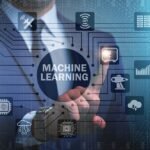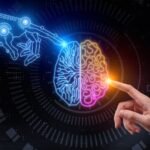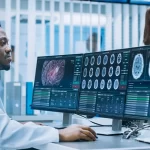Evolution wired human brains to act like supercomputers
Now, scientists have a mathematical model that closely matches how the human brain processes visual information
Scientists have recently made a groundbreaking discovery confirming that the human brain possesses an innate capacity for complex calculations, akin to a high-powered computer. This remarkable capability, termed Bayesian inference, is integral to how humans comprehend the world around them.
Published in the journal Nature Communications, this study was conducted collaboratively by researchers from the University of Sydney, the University of Queensland, and the University of Cambridge. They constructed a precise mathematical model mirroring the workings of the human brain, particularly in the realm of visual perception. This model encapsulated all the necessary elements for executing Bayesian inference.
Bayesian inference is a statistical technique that blends prior knowledge with fresh evidence to formulate educated hypotheses. For instance, if an individual is familiar with the appearance of dogs and encounters a furry, four-legged creature, they may utilize their existing knowledge to deduce that it is a dog.
This innate capacity empowers humans to interpret their surroundings with exceptional accuracy and swiftness, in stark contrast to machines, which can struggle with rudimentary tasks like deciphering CAPTCHA security measures, such as identifying fire hydrants in a set of images.
Dr. Reuben Rideaux, the senior investigator behind the study from the University of Sydney’s School of Psychology, remarked, “Despite the conceptual appeal and explanatory power of the Bayesian approach, how the brain calculates probabilities is largely mysterious.”
He went on to state, “Our new study sheds light on this mystery. We discovered that the basic structure and connections within our brain’s visual system are set up in a way that allows it to perform Bayesian inference on the sensory data it receives.”
The significance of this discovery lies in the confirmation that the human brain is inherently structured to engage in this advanced form of processing, enhancing our ability to interpret our surroundings effectively.
Furthermore, this research not only validates existing theories concerning the brain’s utilization of Bayesian-like inference but also unveils new prospects for research and innovation. Harnessing the brain’s natural aptitude for Bayesian inference could lead to practical applications that benefit society.
Dr. Rideaux elaborated, stating, “Our research, while primarily focused on visual perception, holds broader implications across the spectrum of neuroscience and psychology. By understanding the fundamental mechanisms that the brain uses to process and interpret sensory data, we can pave the way for advancements in fields ranging from artificial intelligence, where replicating such brain functions can revolutionize machine learning, to clinical neurology, potentially offering new strategies for therapeutic interventions in the future.”


































